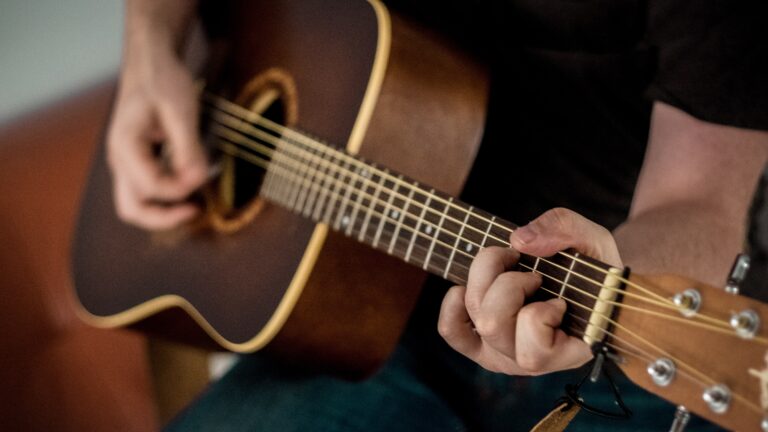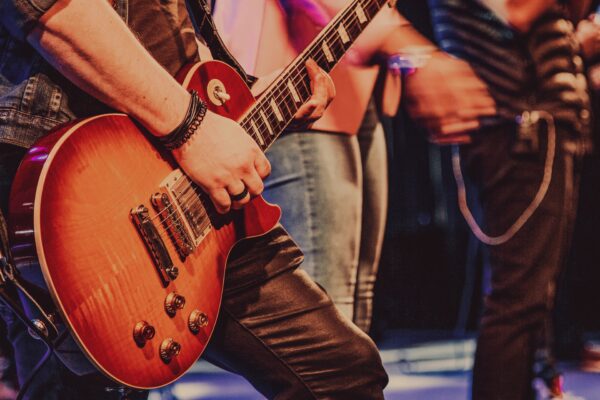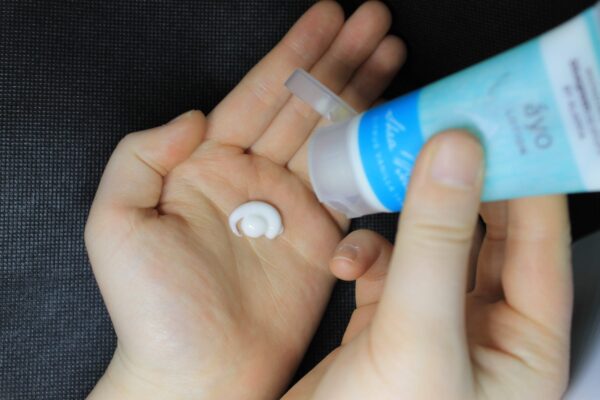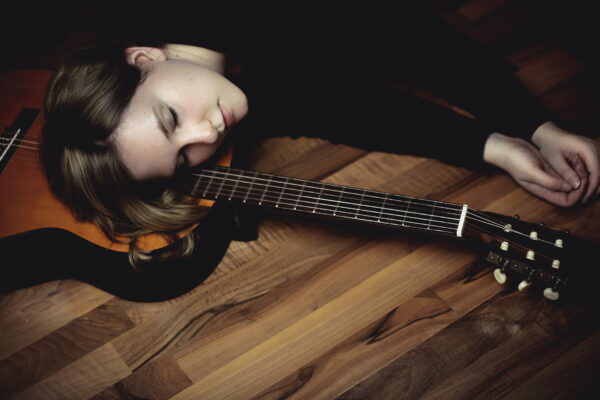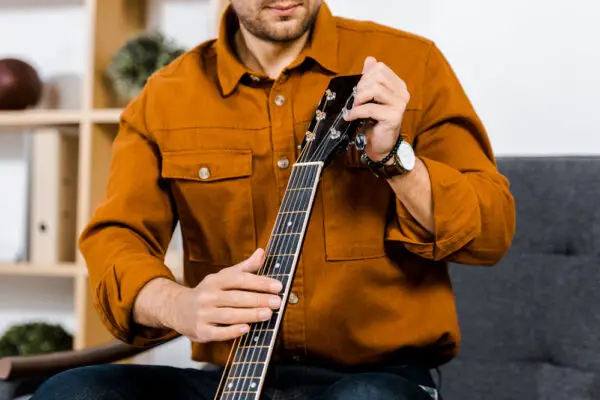Table of Contents
One of the most frustrating things about learning guitar is having constant pain in your fingertips. This makes the whole learning process difficult, and you don’t know whether you should stop or continue. Do you still play guitar even when your fingers hurt? When do you stop?
In this article, we will go over some of the most common questions about playing guitar when your fingers hurt. We also have a few tips to help you deal with fingertip pain!
Should you stop or should you play guitar even when your fingers hurt?
When your fingertips start hurting from continuously playing guitar it is better to take a break. Make sure you give your fingers some time to rest. This could be between half an hour to an hour. You can then try to play again, but you need to gently press the strings, and soon enough you will feel pain again.
There are different pain thresholds, and while some people stop at the slightest pain they feel, others keep going. You need to understand that fingertip pain is one of the most common challenges that any beginner guitar player will face.
It is important to keep practicing despite feeling discomfort in your fingers. This is what allows you to learn guitar faster, and to develop calluses, that will eventually ensure that your fingers do not hurt.
Although you should make an initial push to try to ignore the pain, you also do not want to keep playing if it is hurting you a lot. Remember that it is absolutely normal for your fingers to hurt when you are learning guitar.
Consequences of playing when your fingers are hurting
There are several consequences of guitar finger pain, that you need to be aware of:
- It becomes difficult to play correctly
- You lose focus
- It can make you frustrated
- It can make your fingers bleed
It becomes difficult to play correctly
One of the most common consequences of guitar finger pain is that you cannot play correctly. The pain makes it difficult to press the strings, and you may end up playing the wrong note, or not being able to form a chord.
You lose focus
Another common consequence is that you lose focus on what you are doing. Since the constant pain makes it difficult to focus on the song, chord, or notes you are playing. This can ruin the whole learning process since your brain will be much more focused on the pain than on learning.
It can make you frustrated
Ultimately, finger pain can make every beginner guitarist very frustrated, and it can even make you lose interest in learning guitar. You want to avoid this by accepting that it is a normal process that every guitar player has to go through. Make sure you take some breaks in between your practice routine to give your fingers enough time to heal.
It can make your fingers bleed
In extreme situations playing while your fingers are already hurting can make your fingertips bleed. This is something that could seriously harm you, and you want to avoid it at all costs.
If your fingertips start bleeding you can really damage your fingers, and it will be a lot more difficult to play during the next week. So make sure you withstand the pain for a while, but do not push it too far.
Can your fingers bleed from playing guitar?
Yes, playing the guitar can cause your fingers to bleed, as they may come into contact with the strings while playing. This is because the strings are made of metal, which can cause minor cuts and abrasions on the skin layer.
Guitar finger pain is very common among guitar students, and it should be avoided. This will create a wound, that will make it even more painful to play during the following weeks.
To avoid this, you should press the strings lightly when your fingers start hurting and make sure you use a cream on your fingers at night.
Does playing guitar damage your fingers?
According to Healthline, if you keep constantly playing when your fingers are hurting, it can severely damage the nerves and the fingertips. This is why it is so important to stop playing and let your fingers rest when they start to hurt a lot.
You need to give your fingers enough time to create calluses, and applying cream when you are not playing guitar can help to restore the skin layer.
How to take care of your fingers when playing guitar
There are a few key things to remember when taking care of your fingers while playing guitar:
- Apply moisturizing cream
- Take breaks
- Press the strings lightly
- Use lighter gauge strings
- Practice with a classical guitar
- Taping your fingers
- Guitar finger protectors
Apply moisturizing cream
Firstly, make sure you keep them moisturized by applying cream, as this will help keep them healthy and prevent any cracking or drying.
Take breaks
You also want to make sure you take a few breaks especially when you are first learning, to let your fingers rest for a while.
Press the strings lightly
Avoid using excessive force when pressing the strings, because this can make your fingers hurt even more.
Use lighter gauge strings
You can also use lighter gauge strings, which are thinner and are easier to press, and do not require as much strength.
Practice with a classical guitar
Additionally, you can also consider practicing with a classical guitar that has nylon strings as opposed to metallic strings. Nylon strings are softer which makes them easier on the fingertips.
Taping your fingers
You can also consider taping your fingers. This can be very useful if you just started learning guitar and want to keep on practicing for longer periods but your fingertips are hurting.
Guitar finger protectors
Guitar finger protectors are silicone fingertip accessories that resemble a thimble and can be used on your fingers to make pressing the strings easier. It also allows you to play longer, and it does not hurt your fingers as much.
Taping your fingers to play guitar
Taping your fingers to play guitar is a technique used by many guitarists to reduce the pain caused by pressing the strings. By taping your fingers, you are able to protect your fingers while playing, and you will be able to practice more and build those guitar skills faster.
Some players also use guitar finger protectors which are made of silicone and help protect your fingertips. There are mixed feelings about guitar finger protectors. While some players advise using them, other players do not think it is a good solution because it can prevent your fingers from developing, and it does not help you to create calluses.
Do guitar fingers ever heal?
Yes, guitar fingers will eventually heal. As you become more experienced playing guitar, the finger pain you are experiencing will disappear, and you will form guitar calluses. Calluses can also go away if you have periods where you stop playing.
Although they might not go away completely, they will become a lot softer. It is also common to lose sensitivity in the fingertip, due to constant playing. Although the sensitivity will come back if you stop playing for a period of time, it will never be the same as someone that has never played guitar.
Conclusion
While it is important to keep playing guitar even if your fingertips are slightly hurting, you want to make sure that you do not overdo it. The risk is eventually damaging your fingertips and creating a wound that can take a week to fully heal.
For that reason, you want to take breaks in between your practice routines and allow your fingers to rest. Use moisturizing cream, and even consider putting tape on your fingers or even using guitar finger protectors.

I have been playing guitar for the past 15 years, and my knowledge and passion for guitars prompted me to start Guitaresque to share my knowledge, tips, and tricks with other guitar players. The sole purpose of this website is to help and inspire guitar players worldwide, to improve their playing and their love for guitars.





